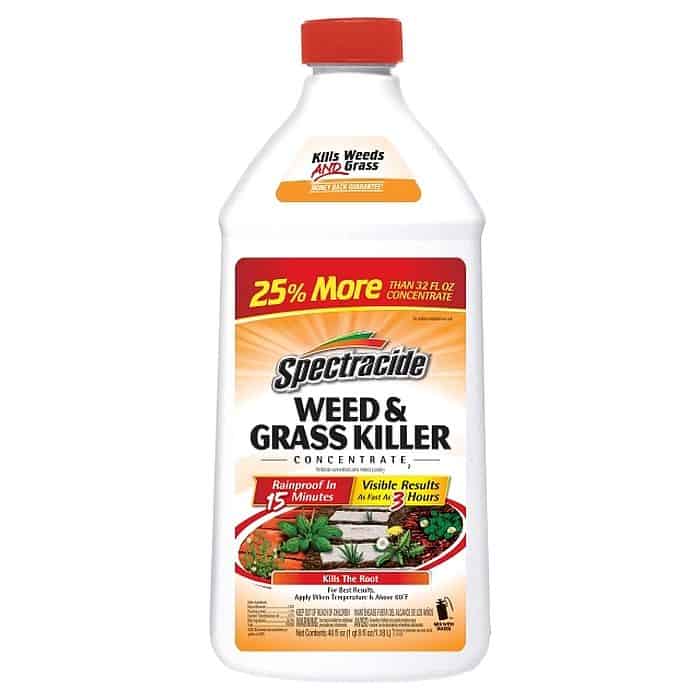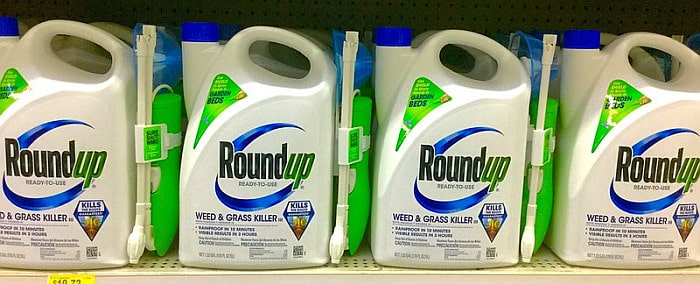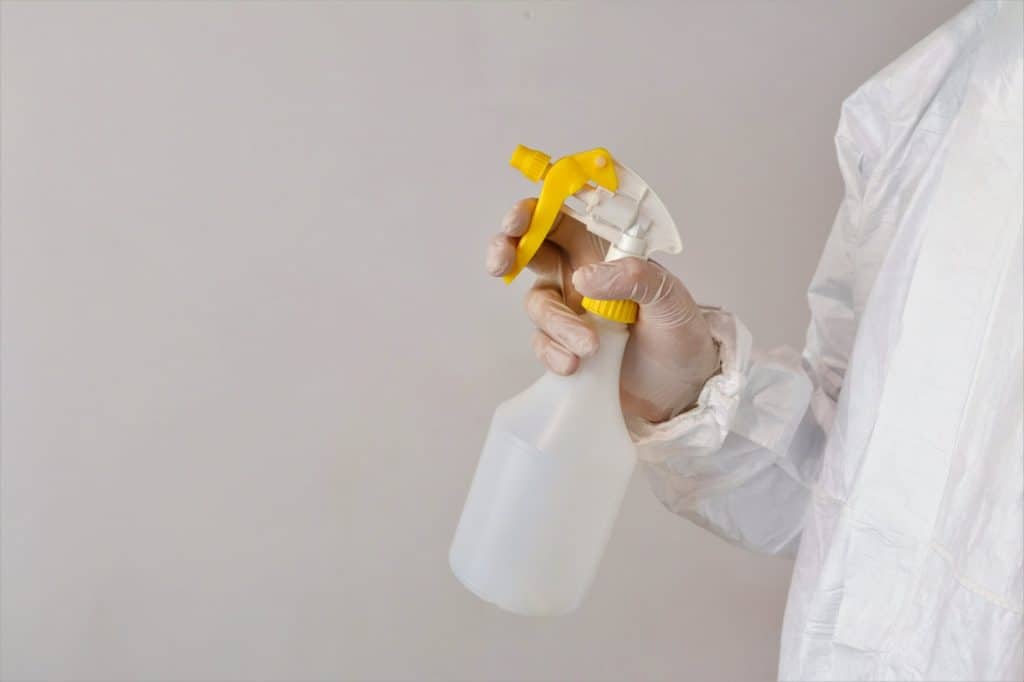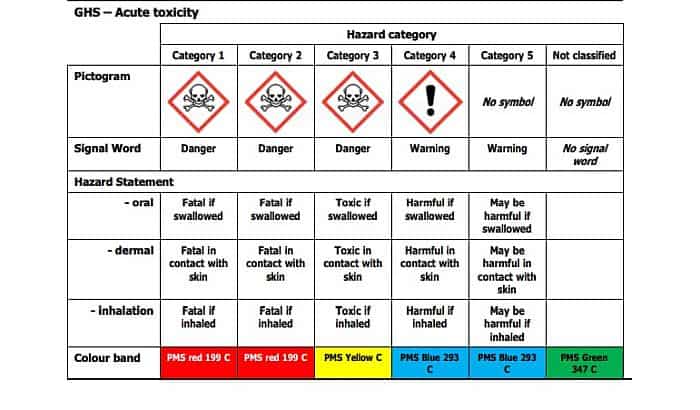Roundup can be a better option than Spectracide if you want to kill the entire weed, including its roots. Spectracide only works on surfaces that it directly touches, so you may need to apply more. However, Spectracide may be a less toxic option than Roundup for humans and the environment.
Have you been looking for the most effective way to kill your weeds and lawn pests? With so many brands and formulas on the market, it can be tricky to know which one to choose.
The overall best option between the two is Spectracide, but let’s dive into a detailed breakdown of Spectracide vs Roundup. I’ll take a look at the pros and cons of each weed and grass killer and explain which one is most suitable for different gardening needs.
Contents
Spectracide Vs Roundup: The Basics
What Is Spectracide?

Spectracide is one of the brands that belong to Spectrum Holdings Inc. The company focuses on indoor and outdoor living, with the Spectracide brand making pesticides and herbicides that target lawn fungus, weeds, and pests.
Spectracide has a few different products in its range, but let’s take a look at Spectracide Weed and Grass Killer Concentrate.
It has the following active ingredients:
- Diquat dibromide (2.3%)
- Dicamba and dimethylamine salt (0.77%)
- Fluazifop-p-butyl (1.15%)
Spectracide is a fast-acting weedkiller that primarily works on weedy grasses. You usually apply it directly to the leaves of the unwanted plants and the diquat dibromide kills the areas that it touches. However, it does not usually target roots or broad-leaved plants unless it gets under the soil.
It is a broad-spectrum weedkiller, making it an excellent option if you have multiple unwanted plants in your backyard. It is particularly effective on the following weeds:
- Clover
- Dandelions
- Ivy
- Most grasses
Spectracide is affordable, but you may need to use large quantities if you have a big garden. Remember that it will only kill plants that it touches, so you may need to spread the solution over a vast area.
Like most herbicides, I recommend using personal protective equipment (PPE) when you handle Spectracide. It can cause skin and eye irritation, so you should wear protective eyewear and chemical-resistant gloves, at a minimum.
If you want to learn more about the correct PPE for using herbicides, you can check out this video.
You should also be aware that Spectracide can be toxic to fish and aquatic life. I don’t recommend using this herbicide if you have any runoff to water bodies like rivers or lakes.
Overall, Spectracide can be an excellent option to kill many kinds of weeds and grasses. As long as you take the time to apply it properly, it should be adequate.
Pros
- Works quickly.
- Can kill various species of weeds and grass.
- Affordable.
- Less toxic to humans than some alternatives.
Cons
- Not the best option to kill weeds at the root.
- May need to apply it a few times.
- Need protective gear when using it.
- Can be toxic to fish and other aquatic animals.
What Is Roundup?

Roundup is one of the most well-known herbicide and pesticide brands worldwide. It is a brand of the Monsanto company, which now belongs to Bayer, and specializes in agriculture biotechnology and agrochemicals.
Roundup has a few different variations, so I’ll examine in-depth the Roundup Weed and Grass Killer Super Concentrate.
Roundup has the following active ingredients:
- Glyphosate 50.2%
It kills weeds and other plants by targeting the roots, leaves, and stems. It can work very quickly and effectively, even if you do not cover the entire area. Unlike other herbicides, like Spectracide, Roundup can even kill parts of a plant that it doesn’t touch.
It is effective on many plants, including the following:
- Broad-leaved plants
- Pokeweed
- Pampas grass
- Dallisgrass
- Other weedy grasses
However, it is not effective on plants like cactus. You can also use Roundup to remove weeds from a vegetable garden bed before planting. You only need to wait three days after application to plant your seedlings.
This video further discusses how soon you can plant after using Roundup on your soil.
Roundup has limited toxicity to fish and aquatic creatures. Although you should still limit runoff into water systems, it is not as dangerous as other herbicides. However, make sure that it doesn’t make contact with other plants in your garden that you don’t want to kill.
However, it can be more harmful to humans and could even cause cancer. Because of this danger, it is partially or fully banned in more than 25 states, including California.
Always use proper PPE when working with Roundup, including safety glasses and protective gloves. You may also want to wear a respirator to protect your lungs from harmful vapors.
Overall, Roundup is an effective weed and grass killer that can kill unwanted plants quickly. As long as you take the proper precautions, it shouldn’t cause you any harm.
Pros
- Can kill roots, leaves, and stems.
- Limited toxicity to fish and aquatic systems.
- Very effective.
- No need to cover an entire plant.
- Easy to use.
Cons
- Some studies show it is carcinogenic.
- Not long-lasting.
- May kill your other plants.
- Need to wear protective clothing when using it.
Spectracide Vs Roundup: Comparing Features
Mode Of Operation

Spectracide has three active ingredients. Of these, diquat dibromide is in the highest concentration. It kills plants by damaging cell membranes and interfering with the photosynthesis process. It does not move inside a plant and so only damages the parts that it touches.
Fluazifop-p-butyl is another active ingredient in Spectracide, and it works by stopping lipid synthesis. In turn, this damages the cell membranes of the plants. The chemical only works at the site of contact.
The final active ingredient in Spectracide is dicamba. It makes plant cells grow and divide abnormally. The weed absorbs the chemical through its leaves, and it travels throughout.
The two main active ingredients in Spectracide only affect the areas that they touch. Dicamba can damage the rest of the plant, but it has the lowest concentration in the herbicide. Therefore, Spectracide could be a better option for smaller gardens where you can apply it liberally.
In contrast, Roundup has glyphosate as its sole active ingredient. It travels through the plant and stops it from making proteins that it needs to grow.
It affects the entire plant, not just the site of contact. Therefore, Roundup could be an ideal choice if you need to kill weeds over a large surface area or if you are struggling with particularly stubborn plants.
Overall, Roundup has a more effective mode of operation.
Application
If you buy Roundup concentrate, you will first need to mix it with water. You can check the correct ratio on the packaging, but it is usually 2.5 oz of concentrate per gallon of water.
You can then use a watering can or sprayer to distribute the herbicide across your weeds and grasses. Ensure that you only spray the plants you want to kill because Roundup is toxic to many plants.
Because Roundup vapor can be toxic for your lungs, I recommend wearing a respirator during any spraying application.
This video shows you how to apply Roundup.
Spectracide is also a liquid concentrate that you will need to mix with water to get the correct ratio for your plants. Check your specific product for the percentage, but generally, you should mix 5-7 oz of concentrate per gallon of water.
You can apply it the same way you would Roundup, using a sprayer or watering can. It is not as dangerous for your lungs as Roundup, but I still recommend using a respirator just to be sure.
This video demonstrates how you can apply it with a pump sprayer.
Overall, Roundup and Spectracide are equally easy to apply. However, Spectracide might be a better option if you don’t have or don’t want to use a respirator.
Toxicity To Humans
Both the herbicide brands have some toxicity for humans. However, they have different effects on the body.
The Washington Toxics Coalition categorizes Spectracide herbicides as low to moderate toxicity. It can be harmful to your skin and eyes, but the damage is usually not permanent. It only damages the parts of the body that it touches, so you can avoid it by wearing the appropriate PPE.
However, Roundup could be potentially more dangerous. A report from the World Health Organization classifies this herbicide as “probably carcinogenic.” It can damage your skin, eyes, and lungs, potentially causing cancer in the long term.
While you can avoid most of the side effects of these herbicides by wearing protective equipment, Spectracide is an overall safer option for humans.
Spectracide Vs Roundup: Stand-Out Features?
There are some features that make each of the herbicides distinct from the other.
- Safety in aquatic systems: Roundup is a safer option if you have potential runoff because it does not target algae or other aquatic plants. It also has limited toxicity for fish, so small quantities shouldn’t do any damage.
- Rapid action: Spectracide works much faster than Roundup, and you may see results in 3-5 hours. Therefore, it could be an excellent option if you need to kill weeds or grasses as quickly as possible.
- Long-lasting in soil: Spectracide has a much longer half-life in soil, remaining for around 32 days. Therefore, it could be an ideal choice if you want to prevent weeds from growing back.
- Kills broad-leaved plants: If you want to remove broad-leaved plants, like shrubs or trees, Roundup is the only practical option. The active ingredients in Spectracide do not harm these plant types, so Roundup is your best ally.
- Superior customer contact center: Roundup provides various ways for you to contact them with questions and complaints. The website offers a phone number, email contact, and link to their Twitter account. Spectracide only has a contact form, so Roundup could be a better option if you need customer service assistance.
Overall, both herbicides offer unique features that make them distinct. Which one is suitable for your needs will depend on the plants you want to kill and how quickly you need to remove them.
FAQs
Does Spectracide Contain Glyphosate?
Spectracide does not contain glyphosate. Its active ingredient is diquat dibromide, and it has smaller amounts of fluazifop-p-butyl, dicamba, and dimethylamine salt. Therefore, Spectracide could be a good option if you are looking for a glyphosate-free herbicide.
Is Spectracide Harmful To Humans?
According to the Washington Toxics Coalition, most Spectracide products can be harmful to humans. They have a low to moderate level toxicity rating. This means that you should take caution when using the product, as it can irritate your skin and eyes. Make sure to wear protective gloves and glasses.
Is Roundup Still Bad?
In 2015, the World Health Organisation determined that Roundup is bad because it probably causes cancer. Its main ingredient, glyphosate, can potentially damage DNA and cause tumors. However, conflicting scientific studies indicate that it has a low risk, and you would need high exposure to cause cancer.
Spectracide Vs Roundup: The Verdict
In the battle of Spectracide vs Roundup, the answer is a simple “it depends.” Each herbicide is more effective in different circumstances, so you should consider your garden and needs.
Use Spectracide if:
- You want to kill weedy grasses.
- You have a smaller garden.
- There is no risk of runoff into water sources.
- You are worried about your health.
If these circumstances apply to your garden, grab a bottle of Spectracide Weed and Grass Killer Concentrate.
Use Roundup if:
- You want to kill broad-leaved plants or weedy grasses.
- You want to kill the entire plant quickly.
- You want to cover large areas.
- You are prepared to wear full-body PPE, including a respirator.
If this sounds applicable, go ahead and buy Roundup Weed and Grass Killer Super Concentrate.
Now you know which herbicide is more suitable for you. Buy the right kind for your garden and take care to apply it correctly. If you have any further questions, feel free to ask in the comments section.





